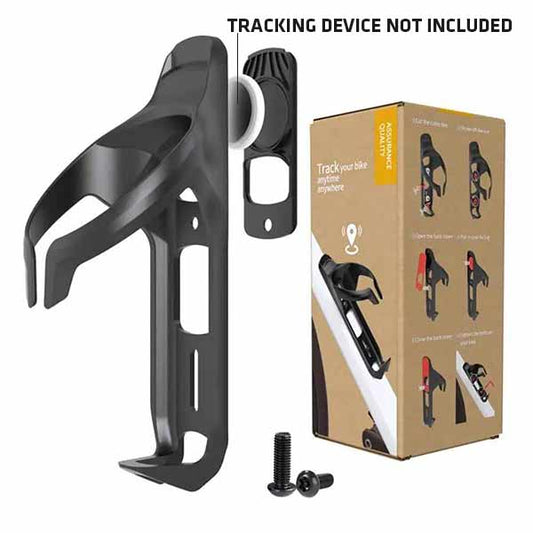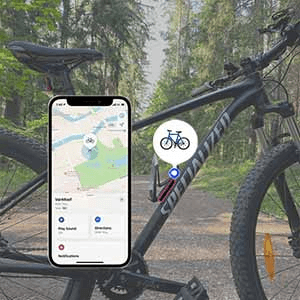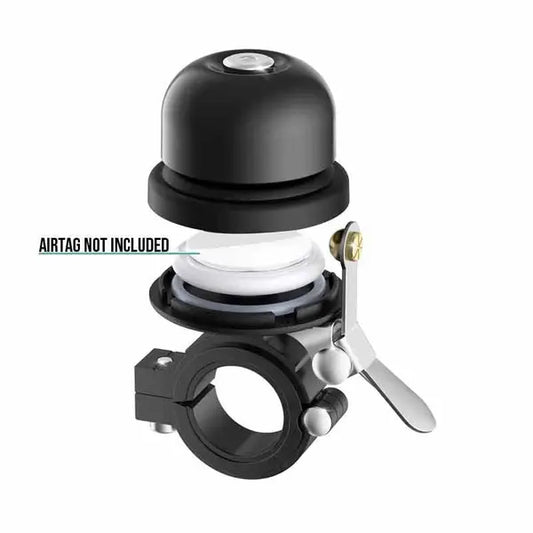<html><head></head><body><h1>Why Biking to Work Is the Productivity Boost You Didn't Know You Needed</h1>
<p>Your daily commute doesn't have to be a dreaded bookend to your workday. In fact, it could be the secret weapon that transforms your professional performance. Biking to work represents more than just an eco-friendly alternative to sitting in traffic—it's a powerful productivity hack hiding in plain sight. When you swap your car keys for a bicycle helmet, you're not just changing your mode of transportation; you're upgrading your entire approach to work and wellbeing.<br><img src="https://d35svtutktme81.cloudfront.net/97321010-50b2-45ca-bdd6-18531f37860e.png" alt="An" energetic,="" early="" morning="" urban="" scene="" featuring="" a="" diverse="" group="" of="" adults="" on="" commuter="" bikes="" riding="" along="" dedicated="" bike="" path="" into="" city.="" the="" includes="" one="" black="" woman="" (early="" 30s),="" with="" natural="" curly="" hair="" in="" ponytail,="" oval="" face,="" and="" wearing="" bright="" yellow="" helmet;="" asian="" man="" (late="" 20s),="" short="" straight="" hair,="" square-shaped="" clean-shaven,="" dimples,="" blue="" jacket="" white="" (mid="" 40s),="" blonde="" bob="" hairstyle,="" heart-shaped="" light="" freckles,="" pink="" high-visibility="" vest.="" sunlight="" streams="" through="" trees,="" casting="" warm="" glow,="" mood="" is="" positive="" focused,="" suggesting="" start="" productive="" workday.=""><br></p>
<p>The benefits of pedaling to your workplace extend far beyond physical fitness. Regular cycling commutes can sharpen your mental focus, elevate your mood, fatten your wallet, and even boost your career trajectory. While many professionals invest in productivity apps and time management seminars, the most effective performance enhancer might be as simple as your two-wheeled ride waiting by the door. For urban and suburban professionals looking to gain an edge, <a href="https://guardsarmor.com/blogs/news">bike commuting essentials</a> could be the foundation of your most productive professional self yet.</p>
<p>In this comprehensive guide, you'll discover how cycling to work creates a ripple effect of benefits throughout your day, from heightened cognitive performance to significant cost savings. You'll learn the scientific connection between morning rides and workplace success, along with practical strategies to make bike commuting a sustainable part of your routine—regardless of your fitness level or cycling experience.</p>
<h2>The surprising connection between biking to work and productivity</h2>
<p>The relationship between your morning cycle and afternoon productivity isn't just anecdotal—it's backed by substantial research. Physical activity, particularly before work, creates neurological conditions ideal for peak performance throughout your day.<br><img src="https://d35svtutktme81.cloudfront.net/5b22b330-4754-4e41-9557-cd504f62f79d.png" alt="A" close-up="" image="" of="" a="" professional="" man="" on="" bicycle="" at="" dawn.="" he="" is="" white,="" mid-30s,="" with="" short="" brown="" hair,="" stubble,="" defined="" jawline,="" and="" blue="" eyes.="" wears="" business-casual="" attire="" under="" reflective="" vest,="" helmet,="" backpack.="" in="" the="" background,="" city="" skyline="" visible="" first="" light="" morning.="" has="" thoughtful="" expression,="" cycling="" while="" world="" just="" waking="" up.="" mood="" captures="" energy,="" mental="" clarity,="" readiness="" for="" workday.=""><br></p>
<p>Regular cycling increases blood flow to the brain, delivering more oxygen and nutrients to your neural pathways. A study from the University of Illinois found that just a 5% improvement in cardiorespiratory fitness resulted in up to 15% improvement in mental tests. This translates directly to workplace performance—after cycling to work, your brain processes information more efficiently, problem-solving abilities sharpen, and creative thinking flourishes.</p>
<p>The morning exercise provided by bike commuting triggers the release of brain-derived neurotrophic factor (BDNF), a protein that supports cognitive function and literally grows new neural connections. This neurological boost combines with exercise-induced endorphins to create what scientists call a "cognitive reserve"—mental resources you can draw upon throughout challenging workdays.</p>
<p>Beyond immediate benefits, consistent cycling establishes better sleep patterns. Quality sleep is fundamental to cognitive performance, and bike commuters often report falling asleep faster and experiencing deeper rest cycles. This combination—better immediate focus plus improved long-term sleep quality—creates a continuous productivity advantage that compounds over time.</p>
<p>The stress reduction from cycling provides another significant workplace benefit. Morning rides give you time to mentally prepare for the day ahead, while evening commutes help you decompress and create a clear boundary between professional and personal life. This natural transition time reduces the cognitive burden of work-related thoughts during off-hours, allowing for more complete recovery.</p>
<p>Many professionals also report that cycling commutes spark their best ideas. The rhythmic, somewhat meditative nature of pedaling creates ideal conditions for what psychologists call "diffuse thinking"—a mental state where connections between seemingly unrelated concepts form more freely. This explains why solutions to persistent problems often emerge during physical activity rather than while staring at a screen.</p>
<p>If you're ready to upgrade your daily routine for maximum productivity, ensuring a secure and stress-free commute is essential. <a href="https://guardsarmor.com/products/airtag-bike-mount-case-with-secret-security-screws">The Guards Armor Bike Mount</a> can keep your commute secure and stress-free as you ride, eliminating worries about bike security that might otherwise distract from your mental preparation.</p>
<h2>Physical & mental health benefits beyond the desk</h2>
<p>The wellness advantages of cycling to work extend far beyond immediate productivity boosts, creating a foundation for sustained professional excellence through enhanced physical and mental health.</p>
<p>Cardiovascular improvements stand out as perhaps the most significant physical benefit. Regular cycling strengthens your heart, lowers resting pulse, and improves blood pressure readings—all while burning 400-500 calories per hour. Unlike gym sessions that require dedicated time blocks, bike commuting integrates this fitness directly into your existing schedule. For busy professionals, this time-efficient approach to exercise eliminates the common "no time for fitness" barrier.</p>
<p>The immune system benefits are equally impressive. Moderate, regular exercise like cycling boosts production of essential immune cells while flushing bacteria from your lungs. This translates to fewer sick days and increased resilience during high-pressure work periods. Research shows active commuters typically use 1.3 fewer sick days annually than non-active commuters—a significant advantage when deadlines loom or important presentations approach.</p>
<p>The mental health impacts of cycling commutes may be even more profound. The combination of physical exertion, exposure to daylight, and brief connection with nature creates powerful anxiety-reducing effects. Morning rides increase serotonin production, naturally elevating mood throughout workdays. This chemical boost helps commuter cyclists maintain emotional equilibrium during challenging workplace situations and improves overall job satisfaction.</p>
<p>Cycling also improves sleep quality through both physical fatigue and exposure to natural light, which helps regulate circadian rhythms. Better sleep directly enhances next-day cognitive performance, creating a positive cycle where each commute builds upon previous benefits. The result is greater emotional regulation, improved interpersonal skills, and enhanced decision-making capabilities—all crucial factors in professional advancement.</p>
<p>The holistic health improvements from regular cycling ultimately translate into measurable workplace outcomes. Active commuters demonstrate greater stamina during long meetings, maintain focus later into workdays, and show more consistent performance over time. They also report higher job satisfaction and lower burnout rates, suggesting cycling's health benefits extend into career longevity.</p>
<p>Choosing the right gear for your commute is essential; see these <a href="https://guardsarmor.com/">expert biking tips and essentials</a> for keeping your ride smooth and secure while maximizing these health benefits.</p>
<h2>Real-world advantages: saving time, money & the environment</h2>
<p>The practical benefits of bike commuting extend beyond health and productivity into tangible everyday advantages that impact both personal finances and global sustainability.</p>
<p>Financial savings represent one of the most compelling reasons to switch to cycling. The average American spends between $8,000 and $12,000 annually on car expenses, including payments, insurance, fuel, maintenance, and parking. By contrast, bicycle maintenance typically costs just $100-300 per year after the initial investment. Even accounting for occasional public transportation during bad weather, bike commuters can realistically save $5,000-10,000 annually—essentially giving themselves a significant tax-free raise.</p>
<p>These savings compound in less obvious ways. Cycling commuters often report lower healthcare costs due to improved fitness and fewer illness-related expenses. Many employers and insurance providers offer wellness incentives for active commuting, providing additional financial benefits. Some countries and municipalities even offer tax breaks for bicycle commuters, recognizing the broader societal benefits of reduced traffic and pollution.</p>
<p>Time efficiency represents another practical advantage often overlooked in commuting calculations. While cycling may initially appear slower than driving, when accounting for traffic congestion, parking searches, and the elimination of separate workout time, many commuters actually reclaim hours from their week. Urban cyclists frequently report more consistent commute times than drivers, as bikes can maintain steady speeds regardless of traffic conditions and take advantage of shortcuts unavailable to cars.</p>
<p>Environmental impact provides a third major advantage with both personal and global implications. A typical commuter who switches from driving to cycling prevents approximately 6 tons of carbon dioxide emissions annually. Beyond carbon, cycling eliminates particulate pollution that directly impacts respiratory health in urban environments. The collective effect of increased cycling creates cleaner air, quieter neighborhoods, and more livable communities—benefits that extend beyond individual commuters to everyone in the vicinity.</p>
<p>The economic ripple effects extend into community benefits as well. Research shows cyclists are more likely to shop at local businesses along their routes, creating stronger neighborhood economies. They require significantly less parking infrastructure, allowing for more productive use of urban space.<br><img src="https://d35svtutktme81.cloudfront.net/2747c09f-ebf7-4fe7-ad1a-190947d9290d.png" alt="A" friendly,="" late-afternoon="" city="" scene="" outside="" an="" office="" building="" showing="" two="" professionals="" locking="" their="" bikes="" at="" a="" secure="" modern="" bike="" rack.="" one="" is="" black="" man="" in="" his="" 40s="" (short-cropped="" hair,="" square="" face,="" gentle="" smile,="" light="" stubble,="" business="" attire="" with="" no="" tie),="" and="" the="" other="" latina="" woman="" her="" late="" 20s="" (long="" dark="" wavy="" heart-shaped="" full="" lips,="" dimples,="" navy="" suit).="" both="" are="" wearing="" helmets="" chatting="" amicably="" as="" they="" bikes,="" creating="" sense="" of="" community="" satisfaction.="" background="" includes="" trees="" few="" cyclists="" on="" street,="" subtly="" conveying="" urban="" vibrancy="" teamwork.=""><br> Cities with robust cycling cultures consistently demonstrate higher property values and more vibrant street-level economies.</p>
<p>Secure your bike with the <a href="https://guardsarmor.com/blogs/news/outsmart-bike-thieves-the-hidden-power-of-airtag-mounts-for-cyclists">hidden AirTag mount for cyclists</a> and avoid unexpected costs or disruptions to your healthy routine, ensuring these financial and environmental benefits remain uninterrupted.</p>
<h2>Setting yourself up for a productive bike commute</h2>
<p>Transforming your daily journey into a productivity-enhancing ritual requires thoughtful preparation and the right approach, especially for newcomers to cycling commutes.</p>
<p>Selecting the appropriate bike forms the foundation of a successful commute. For urban professionals, hybrid bikes offer versatility with their combination of road bike speed and mountain bike stability. Those facing longer distances should consider e-bikes, which provide pedal assistance while still delivering significant health benefits. Your bike should match both your commute characteristics and physical condition—visit a local bike shop for proper fitting to prevent discomfort and potential injuries.</p>
<p>Route planning represents your next critical decision. The shortest path isn't always optimal for cycling; slightly longer routes with dedicated bike lanes or quieter streets often provide safer, more enjoyable journeys. Use cycling-specific navigation apps to identify bike-friendly routes, and consider a weekend test ride before your first commute day. Many cities offer bike route maps highlighting recommended corridors with appropriate infrastructure.</p>
<p>Essential gear extends beyond just the bicycle. A properly fitted helmet is non-negotiable, as are front and rear lights for visibility. High-visibility clothing or reflective elements significantly reduce accident risk. For carrying work necessities, choose between backpacks with ventilation features or pannier bags that attach to racks—the latter option keeps weight off your back for more comfortable riding. A quality lock system is essential for urban environments where theft concerns exist.</p>
<p>Weather adaptations require specific strategies. For rain, invest in waterproof panniers and lightweight rain gear. Hot weather commuting necessitates moisture-wicking clothing and potentially bringing a change of clothes. Many workplaces now provide shower facilities for bike commuters, but baby wipes and deodorant can serve as practical alternatives when showers aren't available. Winter commuting requires additional lighting, warmer layers, and potentially studded tires for icy conditions.</p>
<p>Building the habit gradually increases long-term success. Begin with one or two commute days weekly, perhaps on days with lighter meeting schedules. Establish a preparation routine—charging lights, checking weather, packing clothes—the night before to eliminate morning friction. Join local cycling groups or find a commuting buddy for added motivation and safety. Track your progress with fitness apps to visualize improvements in speed, distance, and cardiovascular metrics over time.</p>
<p>Workplace integration completes the cycling commute experience. Communicate with employers about flexible arrival times during your adjustment period. Identify secure indoor storage options or advocate for their creation if unavailable. Keep a "workplace toolkit" with basic toiletries, a spare professional outfit, and emergency supplies to handle unexpected situations confidently.</p>
<h2>Conclusion</h2>
<p>Biking to work represents a rare opportunity in modern life—a single habit change that simultaneously enhances your career performance, financial health, physical wellbeing, and environmental impact. The productivity boost from regular cycling commutes isn't just temporary; it builds a foundation for sustainable professional growth through improved cognitive function, reduced stress, and enhanced creative thinking.</p>
<p>Each pedal stroke during your commute contributes to a positive cycle of benefits: clearer thinking in meetings, sharper problem-solving throughout your day, and improved emotional regulation during challenging workplace situations. Beyond these individual advantages, you'll join a growing community of professionals who've discovered that the journey to work can be as valuable as the work itself.</p>
<p>The transformation begins with a single ride. Map your route, gather essential gear, and commit to your first cycling commute this week—even if just one day. Your future productive self will thank you for making the switch from passive commuter to active professional. The morning ride that initially seemed like an extra effort will soon become the performance-enhancing ritual you can't imagine working without.</p>
<h2>Frequently asked questions</h2>
<h3>Does biking to work actually improve productivity?</h3>
<p>Yes, regular cycling improves cardiovascular health, boosts energy, sharpens mental focus, and supports a better mood—all factors that enhance productivity at work.</p>
<h3>What if my commute is too long or hilly?</h3>
<p>Try e-bikes for longer or hillier routes; they offer pedal-assist to make the journey easier without losing health benefits.</p>
<h3>How much money can I save by biking to work?</h3>
<p>Depending on distance, you can save thousands of dollars annually by reducing fuel, parking, public transport fares, and car maintenance costs.</p>
<h3>Is it safe to bike to work in a busy city?</h3>
<p>With the right precautions—such as dedicated lanes, visibility gear, and secure bike storage/locks—urban cycling can be safe and even faster than car commuting.</p>
<h3>What equipment do I need to start biking to work?</h3>
<p>You'll need a commuter bike (or e-bike), helmet, front/rear lights, high-visibility clothing, lock, and optionally a secure tracking device for added peace of mind.</p></body></html>





